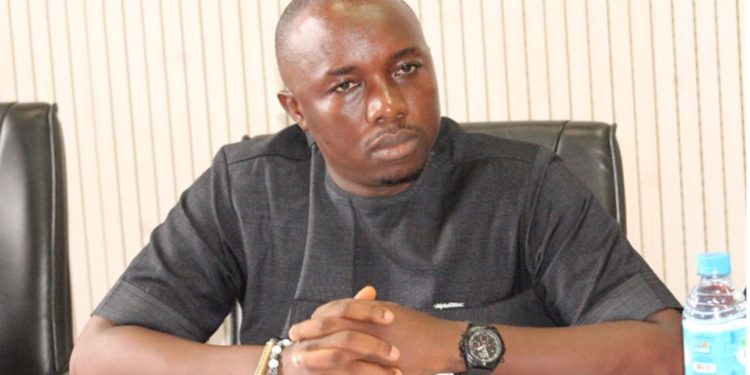By Mackie M. Jalloh
On November 8, 2024, Hon. Aaron Aruna Koroma, Deputy Leader 2 of Sierra Leone’s main opposition All People’s Congress (APC), delivered a powerful critique of President Julius Maada Bio’s administration during a charged parliamentary session. Representing Tonkolili District, Hon. Koroma joined fellow opposition members in challenging the government on unfulfilled promises, economic mismanagement, and misuse of public funds, painting a picture of deepening hardship among Sierra Leoneans.
The critique was set in motion by the Opposition Whip, who condemned President Bio’s campaign promises as “fallacious.” Hon. Koroma echoed this sentiment, affirming the APC’s constitutional duty to hold the government accountable. He emphasized that their responsibility was not to appease the president but to ensure he delivers on his commitments to the people of Sierra Leone.
Central to Hon. Koroma’s argument was the administration’s lack of delivery on infrastructure promises. He highlighted, for example, the government’s claims of funding a hospital and a girls’ school in Port Loko, which were, in fact, built by Mercury International through its Corporate Social Responsibility (CSR) efforts. He argued that the administration’s attempt to claim credit for these projects erodes the credibility of President Bio’s broader infrastructure commitments.
Turning to economic issues, Hon. Koroma underscored the rising costs of food and essentials, which have become emblematic of broader economic distress. He pointed to the rising price of basic goods like eggs as a sign of mismanagement that has led to high inflation and food insecurity. He criticized the Feed Salone project, describing it as a mere “gimmick” to mask the government’s failure to meet its 2019 food security pledges, including its unfulfilled promise to allocate 10% of the national budget to agriculture.
While acknowledging some progress in the energy sector, Koroma criticized the administration’s limited engagement with the private sector to expand and stabilize energy access, which he identified as crucial for economic growth. He argued that strategic partnerships could improve the country’s electricity supply and boost the overall economy.
Another key point in his critique was the country’s financial instability. He raised concerns about the growing national debt, rising inflation, and declining foreign reserves, echoing a recent World Bank warning about Sierra Leone’s vulnerable economic position. Koroma urged immediate government intervention to protect the nation’s financial health, also drawing attention to high mobile network tariffs, which he argued further burden struggling citizens.
Koroma also criticized President Bio’s frequent international travel, which he referred to as the “president’s flying syndrome.” He contended that these trips waste public funds that could be better spent addressing urgent domestic issues, particularly in education, healthcare, and infrastructure.
In closing, Hon. Koroma highlighted the need to improve conditions for teachers and public sector workers, stressing that their well-being is essential for the country’s development. He argued that a focus on enhancing salaries and working conditions for these essential workers is critical for a fairer, more productive society.
Beyond Parliament, Koroma’s sentiments resonate with many Sierra Leoneans frustrated by economic hardship and what they view as misallocated government resources. His critique encapsulates the APC’s commitment to transparency and fiscal responsibility, underscoring its role as a watchdog for the people of Sierra Leone.













